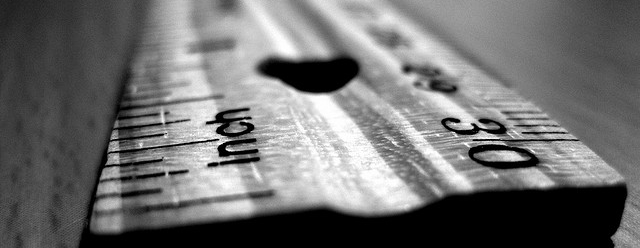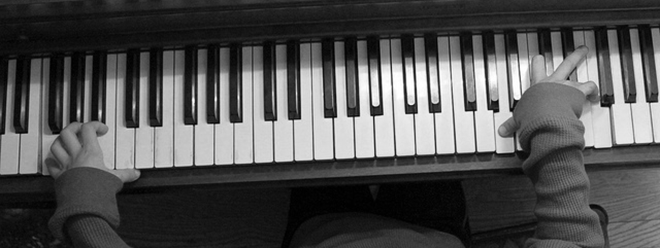
by Tara Joyce | Aug 25, 2016 | Cultural Creativity

How do I balance my innate human desire to estimate how long something will take, with the reality that I often have little control over this truth?
Is the point to do my best in estimating, to get a general sense, and then to leave it? Is the point to do some planning, but to never decide that my expectations are true and correct? Is the point to create motivation to work towards the goal, rather than attaching to its timeline?
Perhaps our time estimates are funny games we play with our Self and with each other, in support of our motivation. If we think it’ll only take 2 years to realize, this feels more motivating than the 7 years it actually takes. Perhaps, we’d never undertake the action if we truly knew how much we’d need to put into it to achieve it. Perhaps, our collective need for estimates and time projections is simply a trick we play on our mind and ourselves, to encourage us to take the action in the first place.
We want to feel it won’t take that long to realize. We want to believe that other things in our life won’t arise and take us away from that goal, at least temporarily.
We, in our culture of instant gratification, want so badly for our dreams to be as easy to manifest as the things available to endlessly consume. We’d love to realize our dreams NOW. We’d love to bypass all the other work we haven’t factored into our plan. We’d love if we didn’t need to work on our Self in order to realize our dreams.
We’re only human. We can’t know until we know. But perhaps in coming to accept how arbitrary our timelines are, we can provide that understanding to others. Perhaps, because of this, one day, we’ll find ourselves relinquishing the power Time has over us.
When used kindly, timelines and estimates inspire us into action. When used unconsciously, they leave us feeling not good enough. We’ll likely never meet the exact timelines we set, so why not see and set them more truthfully? Let’s own that we create them to feel more in control of something (Life) than we truly are.
Your timelines and your planning undeniably support you in starting and in making movement, and yet it’s likely your goal will take longer than expected to realize. It seems this is the way it is. Be weary of yourself or anyone else who leaves you feeling less than because you haven’t yet reached your goals. Remember, as long as you’re working towards them, you’re a work in progress and you’re on your way.
photo credit: Scott Akerman

by Tara Joyce | May 22, 2015 | Self/Business Growth

Is there a way to know how to do something without first doing it?
Can I know how to play the piano without first playing it?
Can I possibly, truly know how to do anything without having done it first?
I need practice. I need to learn how to do the thing I desire. I need to do it, to know it. I need to make mistakes.
I don’t know how. I’ve never done this before. I have to practice, and I have to allow for the mistakes I’ll make while I learn. It feels fair to provide myself understanding of this.
Sometimes, my mistakes are more valuable than my triumphs. Sometimes, my mistakes teach me, and grow me, in ways far more transformative.
I need both the highs and the lows for my confidence to grow. The pain and the pleasure are necessary teachers to know how.
I can’t wholly know how without experiencing both. I need their practice. I need to know I can handle both in order to confidently know I can do.
photo credit: woodleywonderworks

by Tara Joyce | Mar 11, 2015 | Cultural Creativity, My Journey | What's On My Mind, Self/Business Growth

Are there things in your life that feel heavy and “work”-like?
For me, dinner has long felt like a task that really weighed me down. I didn’t like how it needed to be planned, I didn’t like how long it took to make, I didn’t like how short it took to eat, and I didn’t like how I didn’t appreciate how it tasted once I’d cooked it. The action was wholly undesirable to me. Yet I had to eat — and so did my family. What was I to do? I needed to find a way to enjoy the process of the action — the beginning, middle, and end — not just getting to the end, and the results it would bring.
To grow in my enjoyment of my heavy task, I began paying attention to the places in my life where I was able to “play” and enjoy the process of an action, and I paid attention to the places where I was not able to do this. I began noticing if I made time to “play” each day in those spaces that felt good, it supported me in bringing more play into the places that feel more heavy, serious and “work”-like. By contrasting my feelings of “play” and of “work”, I found myself with more space to “play” in the heavy stuff and the lighter it became.
This leads me to connect the “work” of making dinner to the “work” of business ownership; no matter what may feel like “work” in your life, there is immense support available to you through learning about the value of lightness, and how efficient it is in getting stuff done.
photo credit: Anant Nath Sharma
language inspired by Lama Marut’s “Be Nobody”

by Tara Joyce | Dec 2, 2014 | Cultural Creativity, Self/Business Growth

In order to write Pay What It’s Worth, my first book of what I hope is many books, I needed to trick myself into not being so scared. I didn’t believe I could do it. I didn’t trust that I had what it took to fulfill a dream I’d held for so long. I couldn’t see how I could clearly share everything that was within me.
As time passed and I continued to struggle with inaction, I decided that a re-framing was in order. I needed to see my newly forming book not as a static unchanging expression (a singular book) but rather as a system of expression (a book that could be upgraded with new versions as my learning and growth arose). Complex systems get created incrementally, layer by layer, by implementing sequential and layered designs that connect to deliver a better whole. They are not formed all at once, nor are they formed perfectly.
I understood this truth, lived it in my non-writing work, and with space and continued struggle, I saw the necessity for this thinking to be applied to my writing work. I was paralyzed without it, stuck reaching for the impossible goal of permanent perfection. I desperately needed to see beyond my ego needs. I desperately needed to understand that there was no real reason that the systems thinking I had grown to love and trust, to incrementally connect things layer by layer, could not be applied to my (or any) book, or to the introduction of an idea and approach I desired to share.
By embracing this systems perspective in my book writing (and in my sharing of an idea close to my heart), it helped me to create freedom to take action on my ideas. In shifting my thinking, I allowed my creation to be imperfect, and I was able to accept that these imperfections would be highlighted and gradually improved upon with time-space and experience. As a person that uses perfectionism as a tool for inaction, this shift in thinking was critical for me to be finally able to move out of the stuck place I was in. I needed to get outside my own desire to get everything exactly right, whatever that meant.
I needed to think about my creation as a layered, changing system so I could feel free in it — free to change, free to grow, free to not know, free to let it out as it was. Seeing my book as system to be grown incrementally helped me create the freedom I needed to move forward to create and express. Systems thinking released me from the unreality of perfection. Systems thinking allowed me the space to naturally make the connections I needed to grow, and systems thinking will continue to support me in growing and building the freedom of creation I desire.
photo credit: Georg

by Tara Joyce | Mar 30, 2012 | Self/Business Growth

Perhaps you’re like me and you find yourself yearning for the completion of your dreams.
I dream of the day when my current “struggles” are behind me. I dream of the day when my first book is written and published, and my second is hot in pursuit. I dream of visiting space.
The word ‘dream’ can have a pie-in-the-sky quality to it that makes me uncomfortable though. It’s not that I think dreams are unrealistic to have. I truly believe that our dreams can come true. But we have to be realistic about achieving them.
My dreams can only come true when I am true to them.
Only thinking about my dreams and not doing, I am simply dreaming. There is no coupling of the dream with a firm intention to manifest it.
I get lost in dreaming when I start thinking I need to know how to get to the end result. I scare myself into inaction by the hulking picture of the goal realized. I start to think I need to know how to GET THERE NOW, and of course I have no fucking idea how.
My success can’t be guaranteed… especially if I haven’t committed to it.
The thing is, I do not need to know how to get there. I do not need to know each step to my dream realized. I only need to be willing to act in the direction of it.
To manifest my dreams, and to move from dreaming to goal achievement, I only need to couple the largeness of my dream with small, concrete and strategic steps.
My dreams can not come true over night. But each small step I take does bring the bigger dream a notch closer, and knocks it down a size.
It’s the aching yearning for completion, as painful as it can be, that drives me to act, and commits me to achieving the dream. That is what it is there for. To drive me in the right direction. It is not to be the final destination.
My true destination, I bet, will be beyond my wildest dreams.
“Whatever you think you can do, or believe you can do, begin it, because action has magic, grace and power in it.” – Goethe










